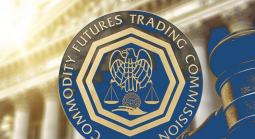Online Poker Payment Processor Motion (Part 2)

13
MOTION OF ACCOUNT SERVICES CORP. FOR RETURN OF PROPERTY
CASE NO.
22
23
24
25
26
27
28
Of course, it is true that individual moves in poker are called "bets." But
that vocabulary is misleading. The "bet" is not a wager on a chance event. Unlike
poker "bets," true wagers do not alter the outcome of the event. A bet on the Super
Bowl does not change the score; bets at a blackjack table are made before the cards
are dealt; bets on roulette wheels are placed before the ball is dropped. Bets at a
2
http://www.cigital.com/resources/gaming/poker/100M-Hand-AnalysisReport.pdf.
1
2
3
4
5
6
7
8
9
10
11
poker table are different. What is called a "bet" in poker is really a "move" like a
move in any other game: it is a gambit designed to provoke a desired reaction from
an opponent. A player is not betting on what cards his opponents holds - the
essence of gambling. He is betting to influence what his opponents do - the
essence of strategy.
The conclusion that skill is required to win at poker has been further proven
by several recent studies. In one game-theory study, for example, the author
demonstrated through the use of computer simulation that a combination of skills
is required in order to consistently win at poker. See Patrick Larkey et al., Skill in
Games, 43 MANAGEMENT SCIENCE 596 (May 1997). The author programmed
twelve different robots with varying degrees and types of skills, ranging from basic
13
14
15
16
17
18
19
20
21
22
23
24
25
26
knowledge of the rules to being able to calculate odds, learn about opponents, and
bluff; the robots were then pitted against each other in 100 one-on-one games. See
Id. Over the course of the tournament, the random-play robot won only 0.4% of its
games and lost $546,000.00, whereas the most sophisticated robot won 89% of the
hands it played and earned $432,000.00. See Id. at 601, table 2.
Moreover, online poker involves additional special skills. Online play
typically involves many more hands than an ordinary live poker match because
hands are dealt much faster, and many players play multiple tables simultaneously.
Whatever element of chance is involved in individual hands thus evens out as a
statistical matter more quickly than in live play. Other aspects of online play also
contribute to the skill involved - for example, the large number of tables available
for play means that players can make strategic decisions about whom to play
against in the first place. For all of these reasons, online poker requires specialized
skills that live play does not.
2
3
4
5
6
7
8
9
10
11
12
13
14
15
16
17
18
19
20
21
22
23
24
25
(ii) There has been no demonstration that any
applicable state law has been violated
Despite purporting to act pursuant to the IGBA, the government has never
bothered to advise ASC as to the state law it supposedly violated. It is certainly
true that California (the state where the funds were seized), and New York (the
state where the seizures were initiated) do not appear to prohibit online poker by
statute. In general, almost all state statutes distinguish between games of chance
and games of skill: an activity is not gambling if skill predominates over chance or
is the material element in determining the outcome of the activity. Many states
apply a "dominant factor" test, while others apply similar tests, like the material
element test. See, e.g., Indoor Recreation Enters., Inc. v. Douglas, 235 N.W.2d
398, 400 (Neb. 1975); In re Allen, 377 P.2d 280 (Cal. 1962); Las Vegas Hacienda,
Inc. v. Gibson, 359 P.2d 85, 87 (Nev. 1961); State v. Stroupe, 76 S.E.2d 313, 316-
17 (N.C. 1953); D'Orio v. Startup Candy Co., 266 P. 1037, 1038 (Utah 1928);
Harris v. Missouri Gaming Comm'n, 869 S.W.2d 58, 62 (Mo. 1994); 2001 Alas.
AG LEXIS 19, at *7 (2001); N.Y. Penal Law § 225.00(1). In all states which
apply such a distinction, poker cannot be classified as gambling for the reasons
discussed above.
Indeed, a recent New York case indicates that the state bears the burden of
showing as a factual matter that a particular game is a game of chance. See People
v. Hua, - N.Y.S.2d -, 2009 WL 1575188 (N.Y. City Crim. Ct. 2009). The court
there held that a criminal information was invalid where it merely alleged, without
support, that mahjong, the game in issue, was a game of chance. Id. at *4. For the
reasons explained in this memorandum, a full evidentiary record would establish
that poker is not a game of chance.
15
MOTION OF ACCOUNT SERVICES CORP. FOR RETURN OF PROPERTY
CASE NO.
27
28
Several other cases have recently recognized poker as a game of skill and
accordingly affirmed its exclusion from state statutes prohibiting gambling. A
1
2
3
4
5
6
7
8
9
10
11
12
13
14
15
16
Pennsylvania court, for example, applied the dominant factor test and found that
hosting a poker game is not prohibited under Pennsylvania's criminal prohibition
on gambling. See Pennsylvania v. Dent, No. 2008-733, slip op. (Pa. Ct. Com. Pl.
Jan. 14, 2009); 18 PA. CONS. STAT. ANN. §§ 306(1)(i)(ii) & 5513. Specifically, the
court found that "Texas Hold'em poker is a game where skill predominates over
chance" and so is not unlawful gambling under the Crimes Code. Id. at 14.
Similarly, a Colorado defendant charged with illegal gambling after playing
Texas Hold'em was recently acquitted by a jury after presenting evidence that
poker is a game of skill. See Trevor Hughes, Definition Clears Man of Gambling
Charges, Coloradoan (Jan. 30, 2009). Colorado also prohibits gambling under
COLO. REV. STAT. § 18-10-102(2) & -103, but excludes from the definition of
gambling any "[b]ona fide contest[] of skill." Id. § 18-10-102(2)(a).
In California, case law suggests that a game like poker does not violate
applicable law. See Bell Gardens Bicycle Club v. Department of Justice, 36 Cal.
App. 4th 717, 748 (Cal. Ct. App. 1995) (noting that "the testimony unequivocally
showed that winning the Jackpot, unlike winning the poker pot is based
16
MOTION OF ACCOUNT SERVICES CORP. FOR RETURN OF PROPERTY
CASE NO.
18
19
20
21
22
23
24
25
26
27
28
predominantly upon chance not skill.") (emphasis in original); Score Family Fun
Ctr. v. County of San Diego, 225 Cal. App. 3d 1217, 1222 (Cal. Ct. App. 1990)
(quoting expert testimony from Commonwealth v. Two Electronic Poker Game
Machines, 465 A.2d 973, 978 (Pa. 1983), for the proposition that skill used to play
electronic poker games "is not the same skill which can indeed determine the
outcome in a game of poker between human players" because holding, folding,
bluffing and raising play no role in electronic game). Accordingly, because online
poker is legal under the IGBA and counsel has not been directed to any state law
that has been violated, the government acted with callous disregard for ASC's
constitutional rights when it seized funds, without probable cause or, in the case of
the Union Bank accounts, a warrant, from the subject accounts.
1
2
2. ASC has an interest in the seized accounts and a need for
the funds' return
4
5
6
7
8
9
10
11
12
13
14
15
16
17
18
19
20
21
22
23
24
25
26
27
It is beyond dispute that ASC has an interest in the seized accounts: ASC
owned the accounts, which consisted in large part of money held in trust by ASC
for approximately 13,800 individual poker players, as well as operating funds, and
a small amount of other funds unrelated to online poker. See Decl. of Douglas G.
Rennick, attached as Exhibit 2. ASC owed each of those individual players a
fiduciary duty, which it breached when checks issued by ASC, payable to the
individual players, bounced as a result of this seizure. Notwithstanding the fact
that some of the players may have been credited for their lost funds by the
operators, ASC still has an interest in and a need for return of the money. In many
cases, individual players cash their checks at check cashing businesses across the
country; ASC is now liable to every one of those cash checking business that paid
players for what were bad checks, and receives daily demands for reimbursement
of the bounced checks. See Demand Letters, attached as Exhibit 8.3 Therefore,
ASC has a significant interest in the seized accounts and a need for their return.
3. ASC will suffer irreparable injury if the property is not
returned
The government caused irreparable injury to ASC when it unlawfully seized
the funds in ASC's Wells Fargo and Union Bank accounts. ASC was placed in an
untenable position by the government when checks, payable to individual players
for whom ASC held money in trust, bounced. Furthermore, as discussed above,
ASC is now exposed to demands and threats of civil suit from check cashing
businesses that cashed individual players' checks which subsequently bounced. In
3
Counsel has attached several demand letters representative of the hundreds ASC
has received; the names of individuals to whom the checks were written have been
redacted.
2
3
4
5
6
7
8
9
10
11
12
13
14
15
16
17
18
19
20
21
addition to ASC's continued exposure caused by the seizure, ASC's ability to
function as a business has been severely impaired and its survival is threatened by
the unlawful seizure; ASC will likely have to close its doors if the money seized is
not returned and the bank accounts are unavailable for operation of business. See
Decl. of Douglas G. Rennick, attached as Exhibit 2. ASC will therefore suffer
irreparable injury if the property seized is not returned.
4. ASC presently possesses no adequate remedy at law
A Motion for Return of Property under Rule 41(g) is ASC's only available
remedy because no civil forfeiture proceedings have been instituted, nor has a
criminal complaint been filed; ASC's funds were simply seized, in the case of the
Union Bank accounts, without even a warrant. As discussed above, Rule 41(g) is
the primary "vehicle for recovering seized but not forfeited property." Turner v.
Gonzales, No. 06-4020, 2007 WL 1302126, at *1 (C.A.7 (Ind.) May 3, 2007)
(citing United States v. Sims, 376 F.3d 705, 708 (7th Cir. 2004); United States v.
Howell, 354 F.3d 693, 695 (7th Cir. 2004)). The Ninth Circuit Court of Appeals
has specifically held that a motion for return of property is proper where there are
neither criminal proceedings nor civil forfeiture proceedings pending against the
movant. See United States v. Baker, No. CR-04-40054 SBA, 2007 WL 4259556,
at *1 (N.D. Cal. 2007); United States v. U.S. Currency $83,310.78, 851 F.2d 1231,
1235 (9th Cir. 1988). Because the government seized the funds in ASC's Wells
Fargo and Union Bank accounts but has not yet instituted civil forfeiture or
18
MOTION OF ACCOUNT SERVICES CORP. FOR RETURN OF PROPERTY
CASE NO.
23
24
25
26
27
28
criminal proceedings against ASC, there is no adequate remedy for ASC at law.
II. The Government's Seizure and Continued Retention of Funds
from ASC's Wells Fargo Union Bank Accounts is Unreasonable
and the Funds Must be Returned
The Ramsden court recognized that there is no precise test for determining
whether illegally seized property should be returned to the movant. See Ramsden,
1
2
3
4
5
6
7
8
9
10
11
12
13
14
2 F.3d at 326. Nonetheless, the advisory notes explain that "reasonableness under
all the circumstances must be the test when a person seeks to obtain the return of
property." Advisory Committee Notes to the 1979 Amendments to FED. R. CRIM.
P. 41(e). The notes state further that "if the United States' legitimate interests can
be satisfied even if the property is returned, continued retention of the property
would become unreasonable." Id.
Here, continued retention of the funds from ASC's Wells Fargo and Union
Bank accounts would be patently unreasonable and this Court must therefore order
that the funds be returned. As discussed above, the seizure violated ASC's Fourth
and Fifth Amendment rights: in the case of the Union Bank accounts, the funds
were simply seized without a warrant or notice. Moreover, there no probable cause
on which to even obtain a warrant - or to support the Warrant of Seizure for the
Wells Fargo account - because: first, a payment processor cannot violate the
IGBA; second, the vast majority of funds seized belong to individual players who
19
MOTION OF ACCOUNT SERVICES CORP. FOR RETURN OF PROPERTY
CASE NO.
16
17
18
19
20
21
22
23
24
25
26
27
28
most certainly cannot violate the IGBA; and third, there is overwhelming legal and
statistical evidence that online poker does not violate the IGBA. The government
placed ASC in an untenable position when it exposed ASC to liability for checks
that have bounced as a result of the unlawful seizure. Finally, any arguably
legitimate interest the government may have in retaining the funds could be
satisfied even if the funds are returned, because ASC maintains detailed records
regarding the money held in its account and the manner in which it is distributed.
The reasonableness test therefore dictates that this Court order the unlawfully
seized funds returned.
CONCLUSION
For the reasons set forth above, claimant respectfully requests that this Court
order the return of funds seized from Wells Fargo Bank, account number
7986104185, and from Union Bank, N.A., in accounts numbered 353000248 and
1
2
353000256, pursuant to FED. R. CRIM. P. 41(g). Alternatively, counsel requests
that this Court conduct an Evidentiary Hearing on the issues raised by this Motion













